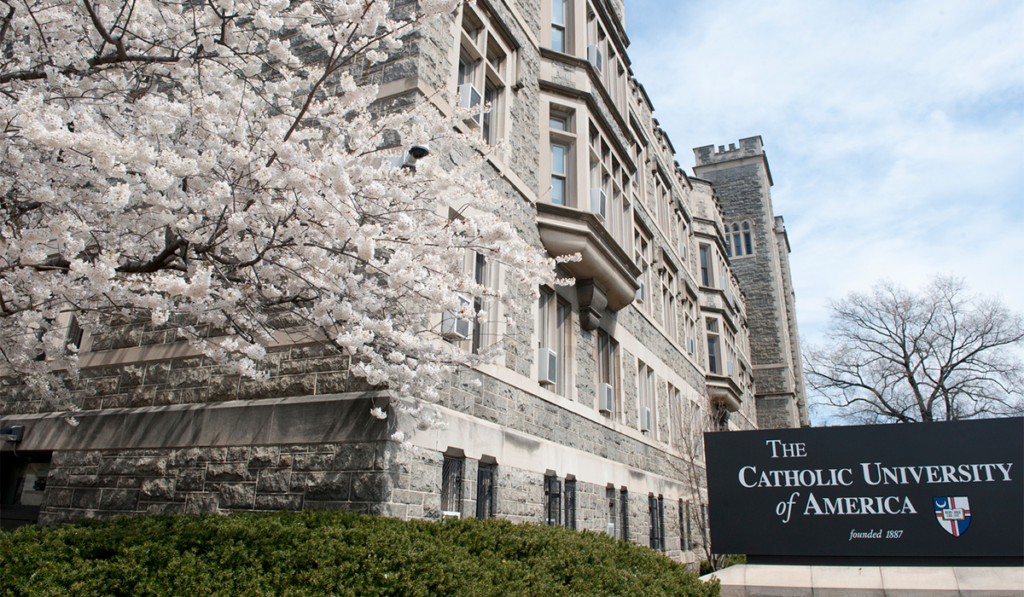Students React to Catholic University’s Latest Housing Announcement

Image Courtesy of The Catholic University of America: Housing Services
By Renee Rasmussen and Anna Harvey
On November 18, shortly before on-campus freshmen returned home for the Thanksgiving break, Catholic University President John Garvey released an email to the university community detailing the series of changes that would be implemented in order to allow upperclassmen to return to campus for the spring 2021 semester.
Many of the announcements in the email were similar to information that was delivered in the various town halls that were held for each class throughout October and November. Some information detailed in the email was new causing contention among students seeking to overcome housing difficulties.
In particular, the email specified that all upperclassmen would be invited back to campus for on-campus housing. During the town halls, administration officials specified that 1,059 beds would be available for upperclassmen and that all single-occupancy rooms are expected to be filled. The university stated at the time that with this limited number of beds, they would try to accommodate as many upperclassmen as possible.
“We have invited all our undergraduate students (not just freshmen) to apply for single-occupancy housing,” Garvey said. “We expect to fill all of our available rooms.”
Despite this broad invitation, housing difficulties for many students still remain unsolved and as of December 1 many students who had filled out the Housing Survey Form still remain on a waitlist.
In addition, students who are on academic leave for the semester, despite having the ability to sign up for classes for spring 2021, are still unable to receive the Housing Survey Form from the Housing Services. Currently, these students remain on a group waiting list, and if an upperclassmen should reject a housing assignment on December 1, the group will simultaneously be contacted to apply for the position.
Furthermore, other students may have already applied for off-campus housing.
Senior English major Rachel Dugan Wood, despite the housing scenario, expressed her anticipation of returning next semester to campus.
“I was thrilled to hear that all CUA students will have the opportunity to live on campus this spring if they choose,” Dugan Wood said. “Living at home and taking classes virtually this semester has made me realize how vibrant our university’s campus life is—even in day-to-day activities—and how much we miss when we’re not there in person. So many of my most treasured memories at CUA are ordinary interactions and informal gatherings that are so difficult to replicate virtually. I’m really looking forward to participating in-person in all our university has to offer this spring, and I’m so glad that members of every class will have a chance to do the same.”
However, some students are not as optimistic about the spring semester.
“I am not sure I want to go back because I would rather have all or nothing,”said sophomore MaryJo Kelly. “I realize CUA is trying to do the best thing in opening, but I feel that the dorming, [COVID-19] restrictions, and overall college in DC experience would not be the same.”
Another unanticipated change in Garvey’s email concerned the implementation of a tuition discount, which was offered to students during the fall semester but will not be offered in the upcoming semester.
“Because we are inviting all of our students back to campus, we will not offer a tuition discount this spring,” Garvey said.
Many students are still concerned about how much of campus life will truly be “in-person.” While Garvey stated that the university anticipates that a “majority”of undergraduate classes will be held in person, many classes are still listed as fully online or hybrid — a mix of online and in-person instruction —leaving students confused as to what to expect this upcoming semester.
With this mix of information, many students are struggling to make informed decisions about next semester, particularly students in different time zones around the country, who cannot reverse expensive transportation and living costs in the case that the university remains online next semester.
“I have been really frustrated about some of the school’s decisions when it comes to housing, and as a student from the West Coast, this first semester has already been incredibly difficult with the three-hour time zone difference,” said senior international economics and finance major Sean O’Grady. “More importantly though, I am very upset at the lack of communication and the flip-flopping on the part of housing. For me, it’s a costly flight of hundreds of dollars, plus a rental car to transport dorm materials, and additional logistics adding up to more than 11 hours of transportation. So I just hope the school realizes that some students need extra support, especially those that live far away.”





